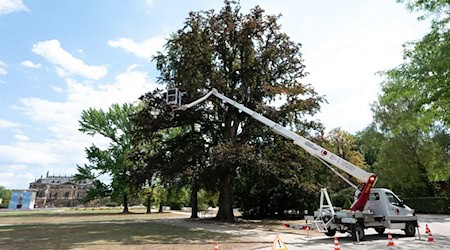Saxony's state capital Dresden has, according to its own information, developed Germany's first heat manual for the behavior and prevention of health hazards. It is aimed at employees of municipal and independent institutions in the fields of health, care, social services, education and housing, and also contains findings on the climate in the city and generally applicable recommendations for the citizenry. She knows of no other brochure of this kind, said author Marit Gronwald of the health department at the presentation on Thursday. It includes tips on how staff should behave when temperatures are high in homes, daycare centers or schools, as well as information on the health consequences of heat, risk groups and how to protect them, and how to avoid exposure.
Social Mayor Kristin Klaudia Kaufmann (Left) spoke of a "cornerstone for the development of the Dresden heat action plan". The manual is part of the HeatResilientCity project, for which an interdisciplinary team has been researching since 2017 how urban neighborhoods and buildings can be better adapted to summer heat. Using the Gorbitz district as an example, the team investigated which factors influence heat stress.
In addition to these findings, the almost 100 pages also contain general information on the urban climate and its development, but also very practical tips on how to prepare for or behave correctly in the heat, from shading indoor spaces and trees outdoors to sun protection, proper nutrition and adapting daily routines or getting to the next cool place or drinking fountain. In addition with necessary investments in heat protection measures at or in buildings to promotion programs one refers.
Earbeitet became the brochure together with scientists of several institutes, the university for technology and economics as well as the technical University (TU) Dresden. In addition, environmental, medical and social associations were involved.
By 2024, the health department is to create a heat action plan in the next step. According to the authority, the focus is on the protection of particularly vulnerable people such as the elderly and the chronically ill, as well as children. "It's about raising awareness in the behavior of each individual, but also for the specific conditions in which we live," Kaufmann said.
Copyright 2023, dpa (www.dpa.de). All rights reserved
.









